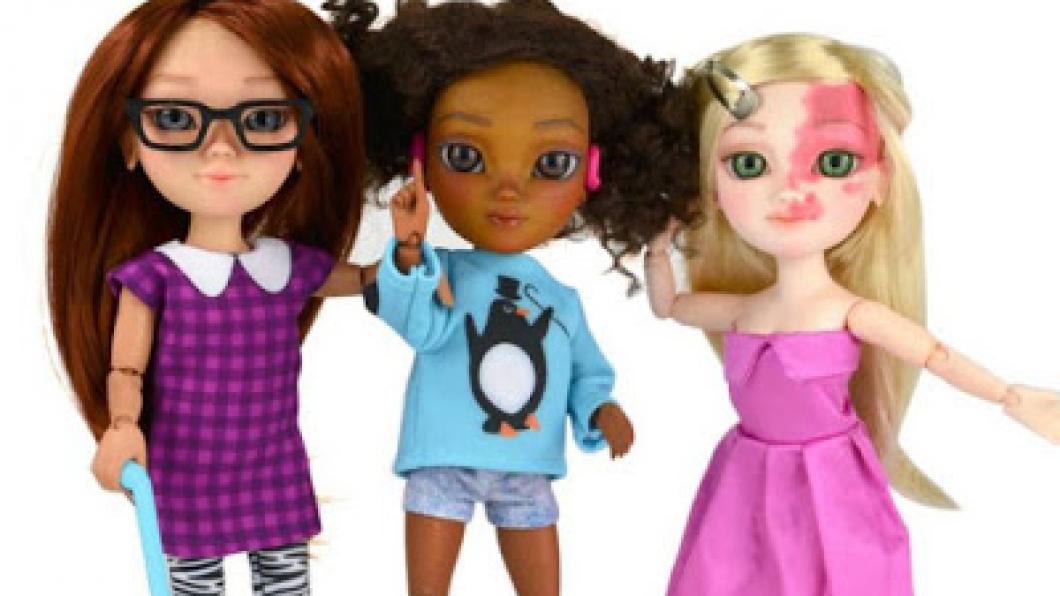
Why I don't believe 'disabled' dolls invoke pity
By Louise Kinross
I was so psyched when I heard that British toy company Makies was creating dolls with disabilities and differences, like a birthmark on the face, in response to the #ToyLikeMe campaign run by parents of kids with disabilities.
So when I saw this New York Post piece by Kirsten Fleming criticizing the move, I was puzzled.
Kirsten writes that she has a "massive birthmark" on the left side of her face. Growing up with a doll that looked like her would have "magnified the very thing I learned not to focus on," she writes. And more than that, she argues that creating dolls with disabilities or "quirks" that set them apart is "code for condescending pity."
I think Kirsten is wrong.
When our family adopted two children from Haiti 10 years ago, it was painful to take them into a mainstream toy store and find only white dolls. What does it say to a child when they don't see themselves mirrored in the culture around them?
Creating dolls that look like real kids, whether it's different races or abilities or with birthmarks, doesn't generate "pity" for those kids. It allows those kids to see themselves reflected back, and it allows their peers to make kids with differences part of their imaginative play.
Last year 10-year-old Melissa Shang and her sister Eva got almost 150,000 people to sign a petition asking American Girl to release a doll with a disability storyline. Melissa has a rare form of muscular dystrophy and is the only student in her class who uses a wheelchair. "I hope they learn how it feels to be in a wheelchair and how it feels to be such an outsider in middle school," she told BLOOM in an interview. "Most importantly, I want them to know I'm just like them."
American Girl declined, missing what appeared to be a slam-dunk marketing opportunity.
I think Kirsten Fleming is a lone voice. And there's something mean-spirited about her words, as if she's really never gotten over being singled out for her own birthmark.
In her piece she recounts the story of a family with a toddler with red birthmarks covering her legs in this way: "They complained that when they went out, her splotchy legs drew persistent stares. How inconvenient for them."
What do you think?